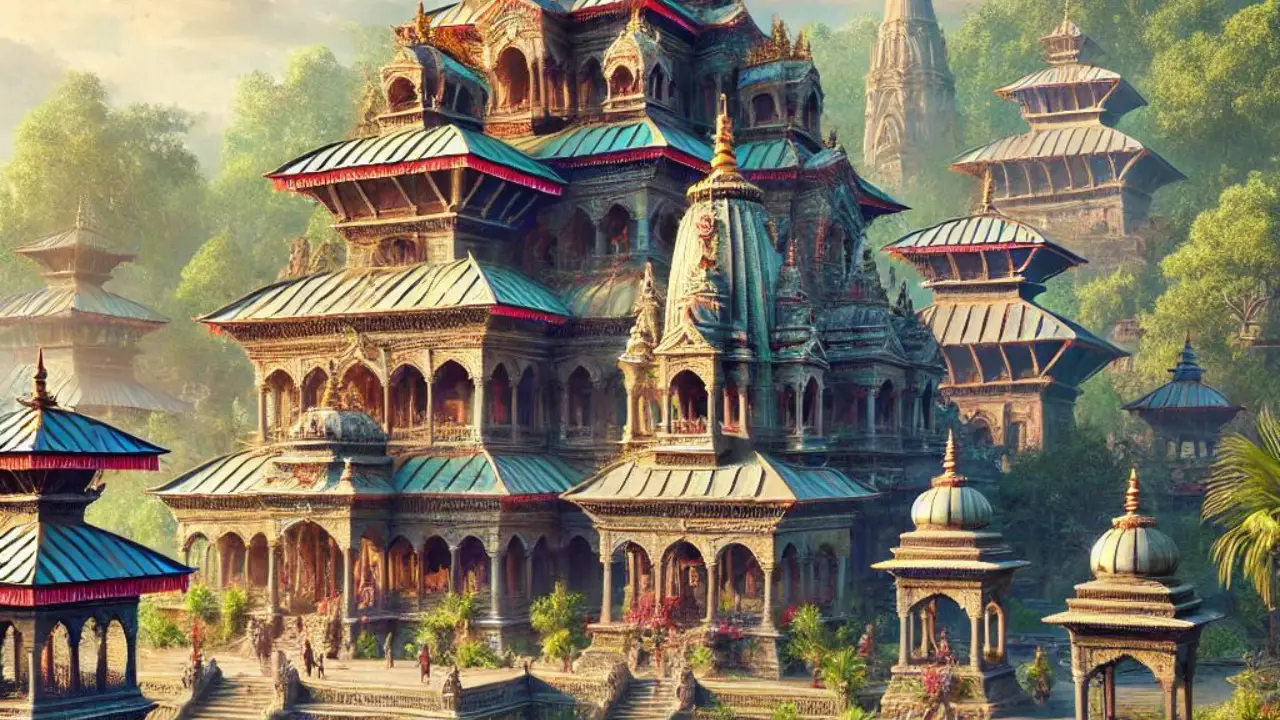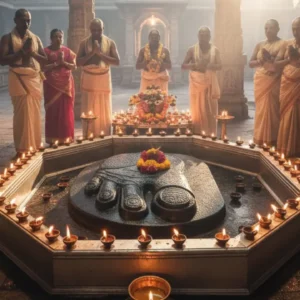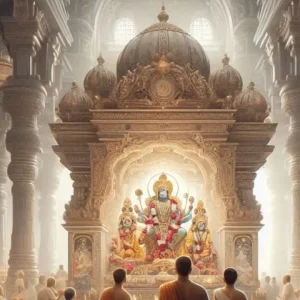The aura of Pashupatinath Temple draws millions every year, making it a sacred jewel in the spiritual landscape of Nepal. Nestled on the banks of the Bagmati River, this ancient temple holds profound significance for Hindus worldwide. Its history, architecture, and rituals make it more than a place of worship; it is a hub for cultural and spiritual enrichment.
A Timeless Sanctuary
Pashupatinath Temple dates back to 400 AD, making it one of the oldest Hindu temples in Nepal. Legends surrounding its origin add to its sacredness. One such tale speaks of Lord Shiva taking the form of a deer in the Kathmandu Valley, captivated by its serenity. His divine presence sanctified the area, leading to the establishment of the temple.
The architecture of the temple, with its two-tiered golden roof and intricate wooden carvings, reflects the skilled craftsmanship of ancient Nepalese artisans. Its main shrine houses a unique, four-faced Shiva Lingam, symbolizing the omnipresence of Lord Shiva.
Cultural and Spiritual Significance
Pashupatinath Temple is more than a religious site; it is a living tradition. It is especially revered during Maha Shivaratri, the grand festival dedicated to Lord Shiva. On this auspicious day, the temple becomes a beacon for devotees from Nepal, India, and beyond.
The rituals performed here, including daily aartis and the chanting of Vedic hymns, create an atmosphere of devotion. For many, offering prayers at Pashupatinath is a step toward spiritual growth and inner peace.
The temple complex also serves as a center for learning and preserving Hindu traditions. The ashrams and dharmashalas nearby welcome pilgrims and scholars, fostering an environment of shared knowledge and devotion.
A Sacred Place for the Final Journey
One of the unique aspects of Pashupatinath is its role in the cycle of life and death. The cremation ghats along the Bagmati River are considered a gateway to moksha, or liberation. Families bring their loved ones for their final rites, believing that this sacred river, a tributary of the Ganga, purifies the soul.
For visitors, witnessing these ceremonies can be a profound reminder of life’s impermanence. It prompts reflection on our spiritual purpose and connection with the divine.
Stories of Transformation
Stories of those who have visited Pashupatinath often speak of life-changing experiences. One pilgrim, Ravi, shared how he found solace after the loss of his father. Performing the final rites at the temple gave him closure and a sense of spiritual connection.
Another traveler, Maya, recounted her journey to Pashupatinath during Maha Shivaratri. She described the overwhelming energy of the temple, where faith united thousands of devotees. The experience left her with a renewed sense of hope and a deeper appreciation for her heritage.
Lessons for Daily Life
Pashupatinath’s teachings extend beyond its walls. The principles of devotion, selflessness, and acceptance resonate with everyone. Taking time to meditate, practice kindness, or reflect on one’s purpose can bring a slice of the temple’s serenity into daily life.
For those seeking deeper spiritual insight, studying the stories of Lord Shiva can be enlightening. His attributes, such as detachment and compassion, serve as valuable lessons in navigating life’s challenges.
Planning Your Visit
If you wish to experience the sacredness of Pashupatinath, timing your visit is crucial. While the temple is open year-round, Maha Shivaratri offers a glimpse into its vibrant cultural significance.
To make the most of your trip, arrive early to avoid crowds. Dress modestly and respect the customs, as the temple enforces strict rules to maintain its sanctity. Non-Hindus are not allowed inside the main temple but can observe the rituals from a distance.
Hiring a knowledgeable guide can enhance your understanding of the temple’s history and rituals. Don’t forget to explore the surrounding areas, including the nearby Boudhanath Stupa and Swayambhunath Stupa, to complete your spiritual journey.
Why Pashupatinath Inspires Devotion
The Pashupatinath Temple embodies more than devotion to Lord Shiva. It represents the continuity of faith, culture, and human connection. Whether you visit for prayer, learning, or simply to admire its beauty, the temple offers a sense of peace and belonging.
Its sacred energy inspires countless visitors to introspect and seek meaning. The temple reminds us that spirituality transcends rituals, connecting us to something greater than ourselves.
Have you ever visited Pashupatinath Temple or any sacred site that left a deep impression on your heart? Share your experiences in the comments below. Let’s create a space to exchange stories and inspire each other’s spiritual journeys.





